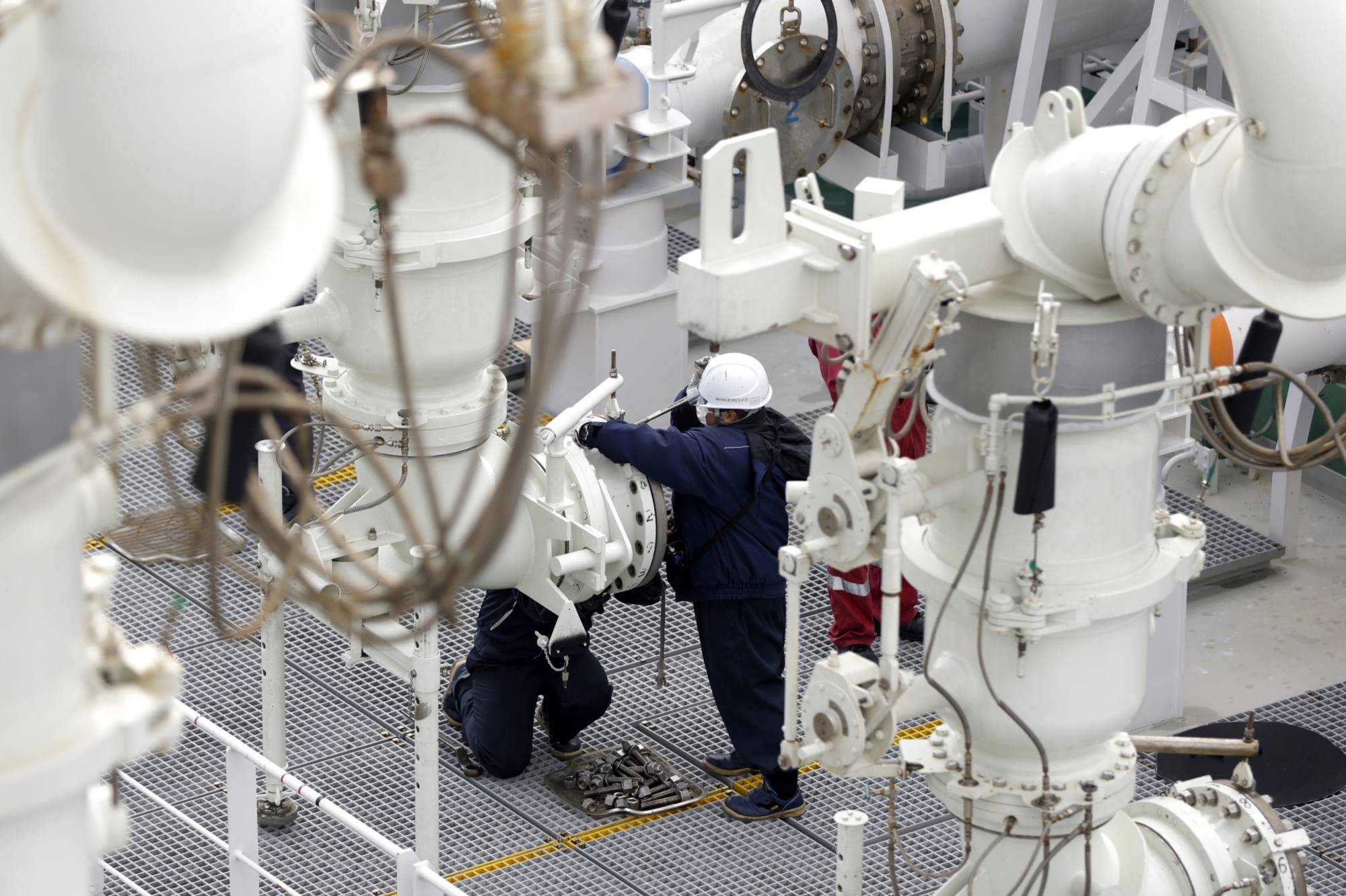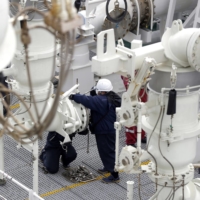Japan's current account surplus shrank 55.6% in April from a year earlier to ¥501.1 billion ($3.8 billion), government data showed Wednesday, as imports grew to their highest level in more than 20 years on soaring energy costs due to Russia's invasion of Ukraine.
The current account balance, one of the widest gauges of international trade, remained in the black for the third consecutive month, the Finance Ministry said in a preliminary report. But the goods trade balance dipped into the red with a deficit of ¥688.4 billion on the increased imports.
The value of imports grew 32.8% to ¥8.7 trillion, up for the 15th consecutive month and the highest since comparable data became available in 1996.
Japan's crude oil imports almost doubled in the reporting month. Those of liquefied natural gas and coal increased 2.5 times and 3 times, respectively.
In addition to higher energy costs, the recent sharp fall of the yen against the dollar also caused import prices to rise.
Exports expanded 17.2% to ¥8.0 trillion, up for the 14th straight month, led by brisk shipments of iron and steel, mineral fuels and automobiles.
The services trade balance, which includes cargo shipping and passenger transportation, registered a ¥965.3 billion deficit, improving by ¥6.2 billion.
The travel balance, which reflects money spent by foreign visitors in Japan on services and goods against the amount Japanese spent abroad, posted a ¥15.5 billion surplus, smaller than the ¥16.3 billion logged a year earlier.
Japan has been relaxing its border controls in phases since March by accepting businesspeople, technical interns and students amid an improving situation regarding COVID-19.
Primary income, which reflects returns on overseas investments, posted a surplus of ¥2.4 trillion, up 18.2%.




